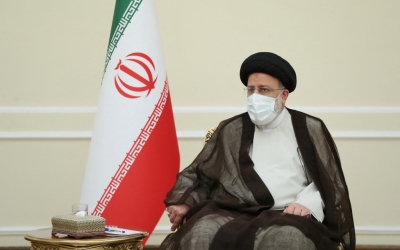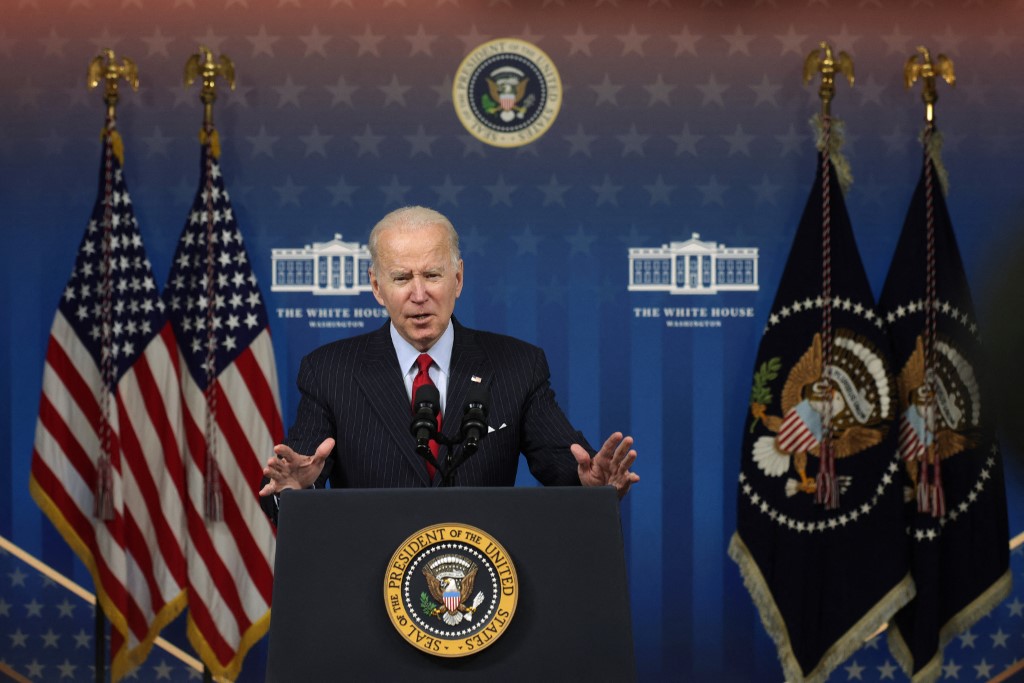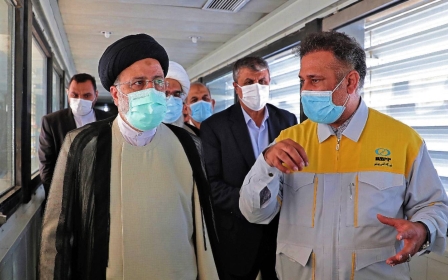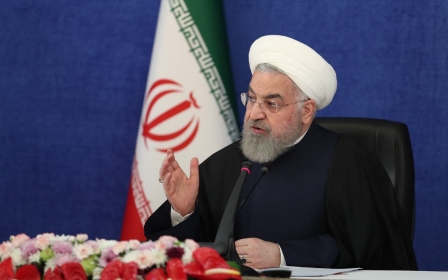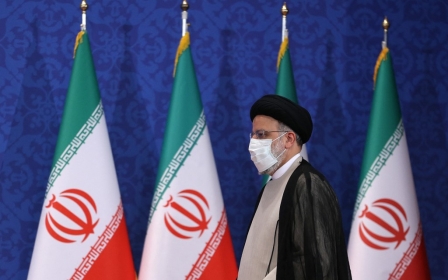Iran nuclear deal: Why talks are likely to fail
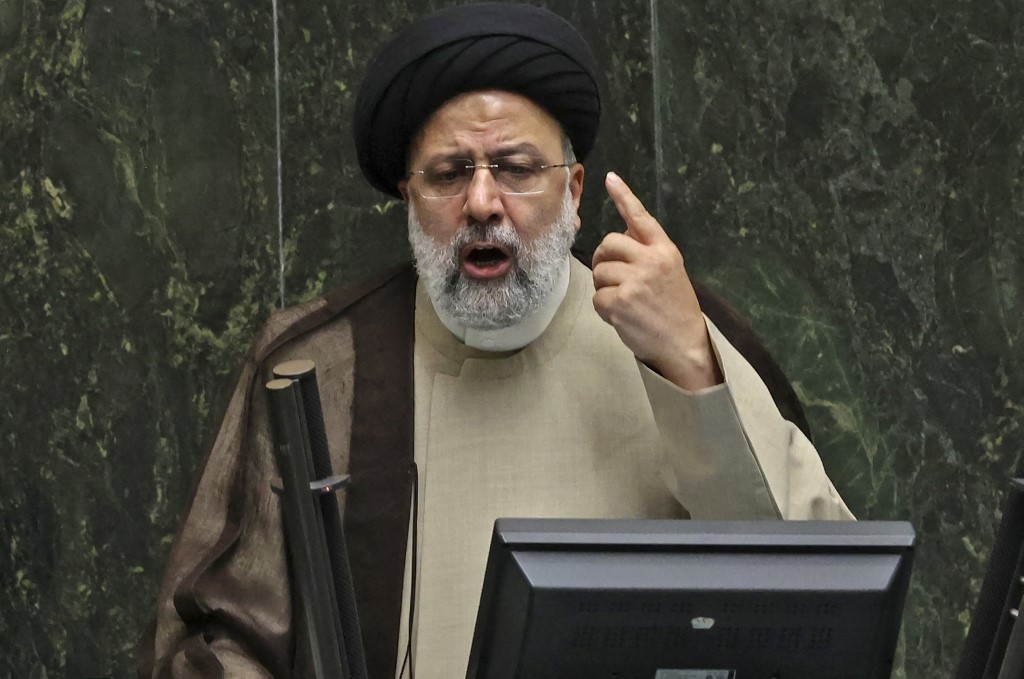
Following a five-month hiatus, talks to revive the 2015 Iran nuclear deal - from which the US unilaterally withdrew in 2018 - are set to resume in Vienna on 29 November.
After the US pulled out of the deal and reimposed old sanctions, along with more than 1,500 new ones, Iran, in retaliation, began ignoring limitations on its nuclear programme stipulated by the deal. Six rounds of talks aimed at reviving the broken accord were held during the last months of the presidency of Iranian moderate Hassan Rouhani and the P4+1 (Britain, China, France, Russia and Germany), along with an EU representative. Under the direction of Supreme Leader Ayatollah Ali Khamenei, Iran joined the talks on the condition that there would be no direct US-Iran negotiations.
Even if an agreement is reached it is only a matter of time before the nuclear deal becomes unstable and collapses again
In June, after the election of hardline cleric Ebrahim Raisi as president, the Iranian government adopted delaying tactics for the resumption of talks. From the conclusion of the nuclear agreement in 2015 until Rouhani and his top diplomat, Mohammad Javad Zarif, left office this past August, hardliners mounted uninterrupted, concerted attacks on them as the deal took centre stage. The hardliners, who now control all three branches of government, argued the Rouhani administration was too willing to bend to the Americans.
Hossein Shariatmadari, chief editor of the hardline daily Kayhan and a representative for Khamenei, said in 2016, before Donald Trump took office as US president: “Enemies, in exchange, gave Iran fake coins under [the nuclear deal].” The same year, Mohammad Ali Jafari, then the commander of Iran’s Revolutionary Guards, said the deal was “the outcome of our diplomacy, a major part of which is based on the commitments made by the unreliable and implacable enemy”.
Khamenei, who rarely admits publicly to making errors, said after the US withdrawal that it was “wrong” to have approved the accord: “I personally made a mistake in these negotiations. As a result of the persistence of the officials, I allowed the [deal].”
Credibility under threat
Even before Trump torpedoed the deal, Ali Bagheri Kani, a “hard hardliner” who will lead Iran’s negotiating team in the upcoming talks, accused Rouhani and his team of retreating in the face of intimidation for accepting it in the first place. Now, against this backdrop, how can the hardliners led by Khamenei return to the original nuclear deal - and justify such a move to their social base?
But it gets even worse. In the dying days of the Rouhani presidency, his chief of staff announced that after six rounds of talks, the Americans were prepared to lift 1,040 sanctions that were inconsistent with the deal. But hundreds of other sanctions under the heading of sponsoring terrorism, human rights violations, ballistic missiles and Tehran’s destabilising activities in the region would remain in place.
To avoid a severe blow to their trustworthiness and credibility with their conservative social base, and above all to prevent the leader’s status from being called into question, hardliners have opted to reject simply returning to the original deal, let alone accepting more sanctions.
On 31 October, the Revolutionary Guards - one of the two main centres of power in Iran, alongside Khamenei and his office - explained in their political organ, Sobhe Sadeq, that Iran’s new approach for the revival of the nuclear deal would include insisting on the “effective removal of all cruel sanctions, a guarantee by western countries for the complete fulfilment of their obligations and assurances that they will never violate and abandon the deal again, and [implementing a mechanism for] verification of sanctions removal.” It added: “An agreement acceptable to the new [Iranian] nuclear team must meet these three conditions.”
Democrats in trouble
In the US, President Joe Biden and the Democrats are now the underdogs going into the 2022, and possibly 2024, elections. According to ABC News/Washington Post polls, the current lead for Republicans is “the biggest … in the 110 ABC/Post polls that have asked this question since November 1981”. Surrendering to the Iranian government’s conditions with regards to rolling back sanctions unrelated to the nuclear issue could put Biden and the Democrats at risk of being labelled as the appeasers of the hardline administration and Raisi, who is linked to the 1988 mass executions of political prisoners. On this front, Raisi has defended his actions, telling reporters: “If a judge, a prosecutor has defended the security of the people, he should be praised.”
In addition, the Biden team cannot legally guarantee that the US will never leave the deal again. Section 1245 of the National Defense Authorization Act for Fiscal Year 2012 authorises the president to issue renewable sanctions waivers on the Iranian oil and banking sectors, which would apply to penalties for third parties dealing with Iran. Any future American president will have the power to refuse to renew the waivers, as Trump did, and Biden cannot repeal that authorisation.
European governments can give assurances that the deal will be upheld, even if the US pulls out. After Trump withdrew, France, Germany and Britain tried hard to circumvent American sanctions by setting up a mechanism to support commercial activities between European companies and Iran. But it never took off, because European banks and companies were not prepared to risk a ban from the US market or astronomical penalties as a result of violating US sanctions.
From the Iranian hardliners’ perspective, it is incomprehensible that governments cannot force their country’s private sector to trade with Iran and ignore US sanctions. The government in Iran would easily handle a similar situation within the country.
In a July article, Sobhe Sadeq explained that Iran will expand and advance its nuclear programme until “Biden’s velvet approach faces the fate of Trump’s cast-iron line of action”. Last month, the Revolutionary Guards more clearly spelled out that “Iran’s objective of adopting patient diplomacy”, delaying resumption of the talks, has been “to convince the main parties” to accept Iran’s conditions.
This time around, the likelihood of talks failing is relatively high, which could lead to a perilous level of escalation in the US-Iran conflict - possibly even a war. Even if an agreement is reached, given their mutual antagonism and Khamenei’s moves to obstruct a detente, it is only a matter of time before the nuclear deal becomes unstable and collapses again.
The views expressed in this article belong to the author and do not necessarily reflect the editorial policy of Middle East Eye.
This article is available in French on Middle East Eye French edition.
Middle East Eye propose une couverture et une analyse indépendantes et incomparables du Moyen-Orient, de l’Afrique du Nord et d’autres régions du monde. Pour en savoir plus sur la reprise de ce contenu et les frais qui s’appliquent, veuillez remplir ce formulaire [en anglais]. Pour en savoir plus sur MEE, cliquez ici [en anglais].



